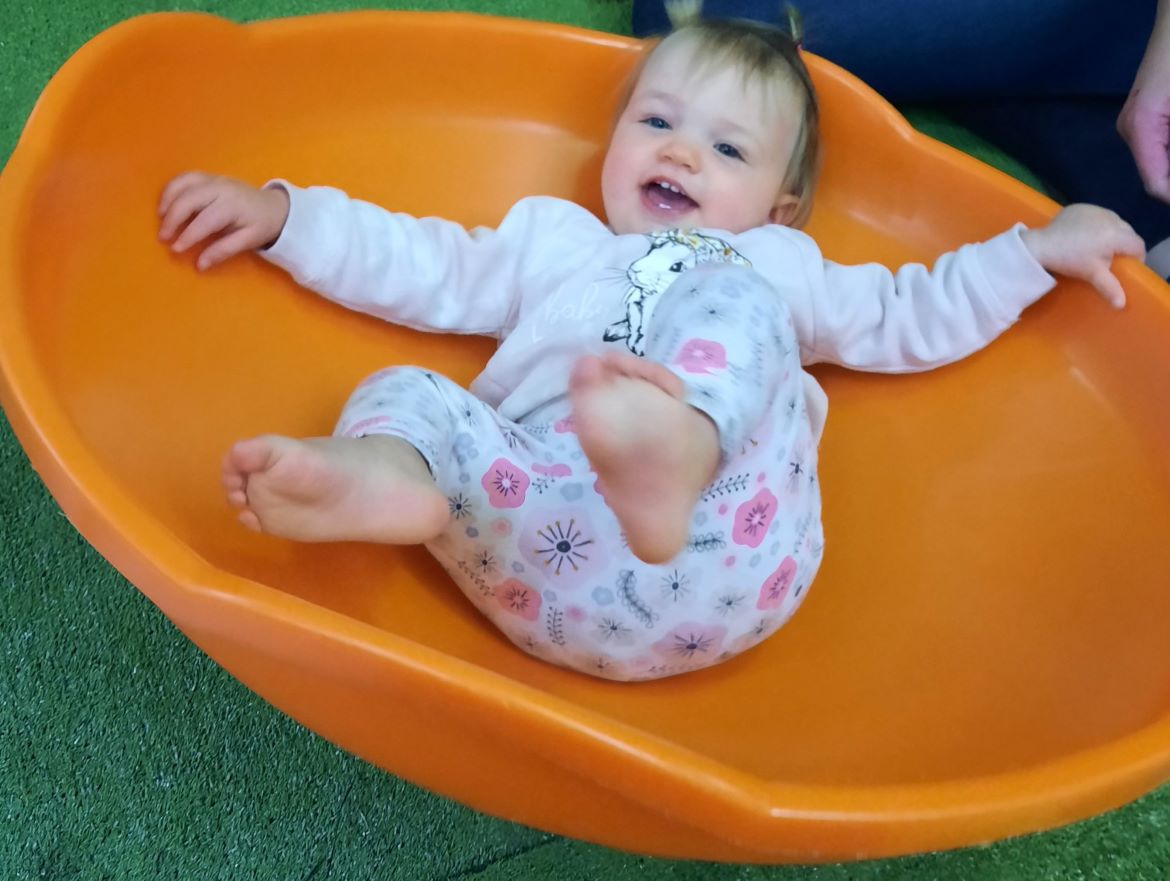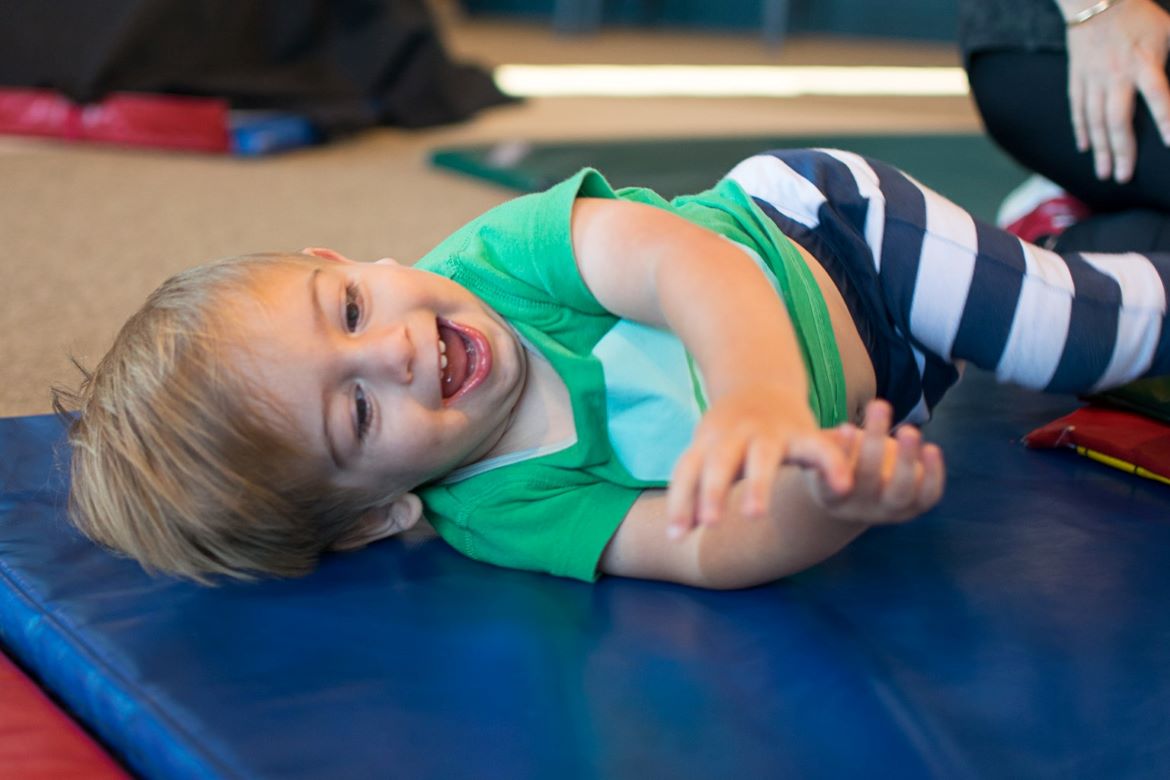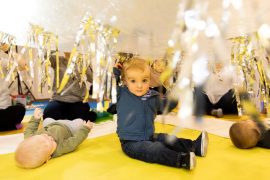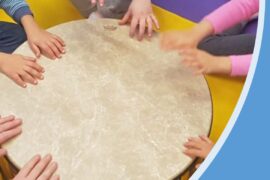By Melissa Pepler
Why do most young children like getting dizzy?
Children generally love any activity that will help them develop and grow. Getting dizzy is no exception. At Jumping Beans children love rolling down slopes and spinning in the dizzy dish or swing. They love swirling round to music with ribbons or scarves.
Growing the Brain
What all of these exercises have in common is that they stimulate the inner ear (vestibular) balance centre of the brain. Neuroscience research shows that when the inner ear balance centres are stimulated, activity increases in a number of important centres in the brain. One centre to be stimulated is the cerebellum at the back of the brain. The cerebellum controls balance and coordination. It also acts like a dynamo for the brain, stimulating the speed at which we think. The cerebellum also has important connections with key emotional and memory centres.
Hence, vestibular exercises help improve a wide range of abilities, including:
1. Balance
2. Co-ordination
3. Speed of thinking
4. Emotional stability
5. Memory
So, when children get dizzy they are helping to grow their brains!

Vestibular exercises include:
- Rotational Activities: Spinning, swinging, rocking, rolling.
- Jumping Activities: trampoline, springboard, running, jumping and landing from a height.
Pointers for Parents
1. Getting dizzy can be highly beneficial for children’s development. It actually makes them safer by improving balance and co-ordination.
2. Getting dizzy has important benefits for learning, thinking and remembering. By stimulating faster brain activity and stimulating the memory centres, vestibular exercises can help to accelerate learning.
3. Some parents, especially dads, love to hold their children and spin them around gently. This is highly beneficial in general. Take care to hold children by their body and support their neck at all times.
4. Allow recovery time between bouts of vestibular activity. By spinning and then stopping, the fluid on the vestibular canals of the inner ear spins fast, stimulating the brain.
5. Never force a child to get dizzy. Especially with vestibular exercises, always stop while your child is still having fun.
6. It is inadvisable to engage in vestibular exercises if your child has an ear infection, has a cold, is unwell or has a special medical condition where it is contraindicated.
WHY IS BALANCE SO IMPORTANT?
Balance is essential for any coordinated movement. Even sitting at a desk at school requires well-practiced balance skills. Balance impacts on memory and concentration as well as coordination, posture and confidence. Balance results from coordinating a myriad of muscles in response to messages from three main balance pathways in the brain.











